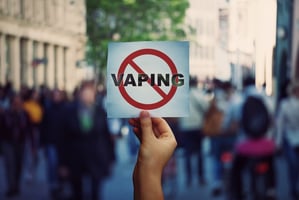Over 60% of Youth Who Vape Cannabis Report Psychological Distress

Youth who reported experiencing severe psychological distress were more likely to vape cannabis in the previous month than those who did not report psychological distress, according to a report in the American Journal of Preventive Medicine.
“Some adolescents may use cannabis to regulate distress, and adolescence is an important developmental period for intervention as adolescents who use cannabis as a coping mechanism may go on to develop problematic use,” wrote lead author Delvon T. Mattingly, Ph.D., of the University of Kentucky and colleagues.
The researchers looked at the association between cannabis vaping and psychological distress among 22,202 youth aged 11 to 18 years using data from the 2022 National Youth Tobacco Survey. Students surveyed were categorized as having normal, mild, moderate, and severe psychological distress, based on their responses to the Patient Health Questionnaire-4 (PHQ-4).
A total of 1,629 youth (about 7.6% of those surveyed) reported having vaped cannabis in the previous 30 days. The breakdown of psychological distress in this group was as follows:
- 22.9% reported severe psychological distress.
- 17.5% reported moderate psychological distress.
- 22.3% reported mild psychological distress.
Of those surveyed who had not vaped cannabis in the past 30 days, 11.4% reported severe psychological distress, 13.0% reported moderate psychological distress, and 20.5% reported mild psychological distress.
Adolescents who experienced severe psychological distress were 1.46 times more likely to have vaped cannabis in the previous 30 days, compared with those who experienced no psychological distress. Those with moderate or mild psychological distress were 1.22 times and 1.16 times more likely to have vaped cannabis, respectively. Being older (16 to 18), receiving poor grades, nicotine vaping, blunt use (for example, smoking cannabis in cigars, cigarillos, or little cigars), and more were associated with higher odds of cannabis vaping.
In addition to screening adolescents experiencing psychological distress so that they can receive the help they need, the authors emphasized that “screening and identifying adolescents with less severe distress and intervening could prevent problematic cannabis use.”
For more information, see the Psychiatric News Special Report “Vaping—A Call to Action for Psychiatrists.”
(Image: iStock/Nastco)
Don't miss out! To learn about newly posted articles in Psychiatric News, please sign up here.






